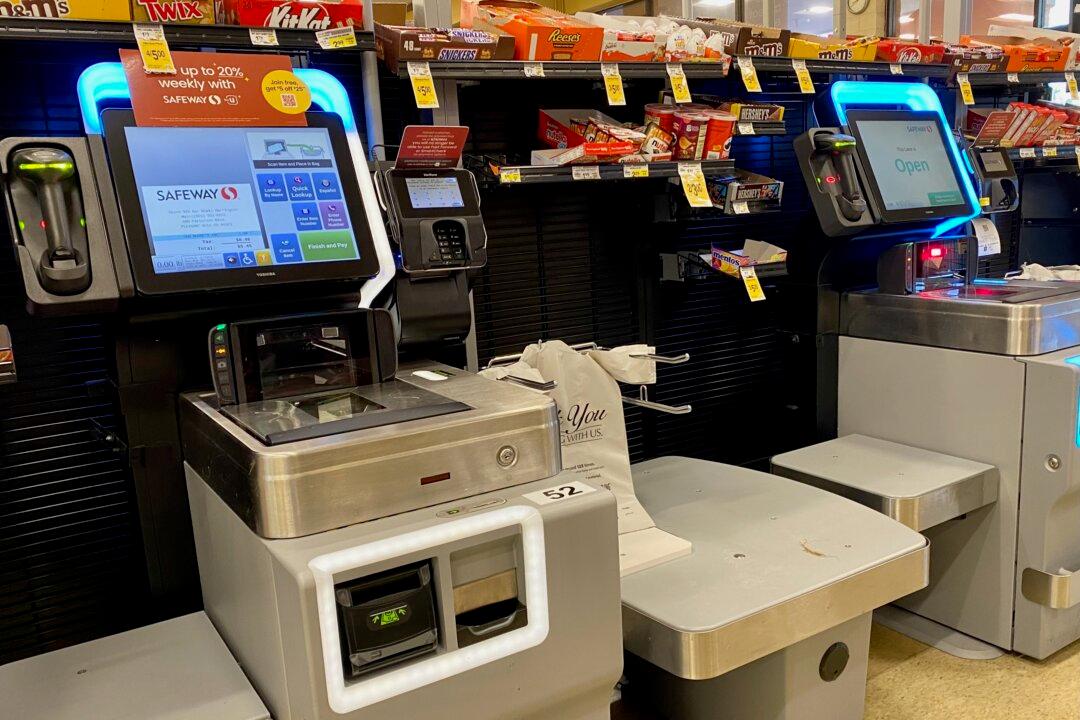A proposed California bill would impose new restrictions on self-checkout for grocery stores and drugstores.
The bill, SB-1446 would require that for every two self-checkout stations, there must be one employee monitoring them, and employees must be relieved of all other duties while monitoring the stations.





